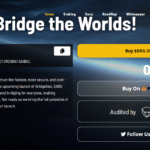I will explain the Best DeFi Insurance Platforms designed to shield users from exposure due to smart contract bugs, hacks, or protocol failures.
These platforms offer an alternative to conventional insurance that is more decentralized, transparent, and efficient, thus promoting greater confidence within the DeFi ecosystem.
These tools can be helpful to both investors and developers in securing their digital assets.
What is DeFi Insurance?
DeFi insurance or insurance cover that is built upon blockchain technology is referred to as DeFi Insurance. While traditional insurance relies on centralized intermediaries such as companies, DeFi insurance operates on decentralized networks using smart contracts, removing the need for these intermediaries.
With DeFi Insurance, users can insure assets, events, or risks in a transparent and secure manner which allows for quicker access to global financial markets. DeFi Insurance leverages the transparency and security offered by blockchain technology to provide lower cost insurance alternatives when compared to traditional insurance systems.
Key Feature & Best DeFi Insurance Platforms for 2025
| Platform | Key Feature |
|---|---|
| Nexus Mutual | Decentralized coverage for smart contracts and DeFi risks using a mutual model. |
| InsurAce | Comprehensive DeFi insurance with a focus on smart contract and stablecoin risks. |
| Bridge Mutual | Community-driven coverage for smart contract failures and DeFi-specific risks. |
| Tidal Finance | Flexible coverage for smart contracts, protocols, and events in DeFi ecosystems. |
| Etherisc | Open-source platform that allows the creation of decentralized insurance products. |
| Unslashed Finance | Coverage for a wide range of DeFi risks like flash loan attacks and smart contract vulnerabilities. |
| Ensuro | Provides decentralized insurance for DeFi protocols and digital asset protection. |
| Sherlock | Smart contract insurance for specific protocol vulnerabilities in DeFi. |
| Solace | Decentralized insurance platform offering coverage for smart contracts and DeFi projects. |
| Bright Union | A platform for personalized insurance, offering coverage based on user needs in the DeFi space. |
1. Nexus Mutual
Considered by some as the Best DeFi Insurance Platforms, Nexus Mutual has made its name from operating the first ever decentralized insurance service on Ethereum.
They focus on providing coverage for smart contract exploits which is an important risk in Defi, hence allowing users to buy insurance for specific protocols.
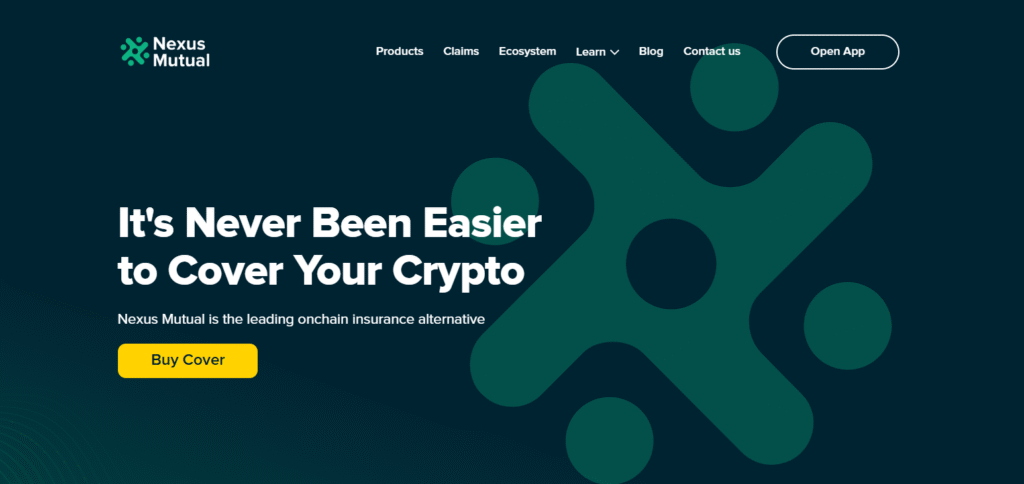
Nexus Mutual runs on a mutual model, whereby capital is pooled by members to provide coverage, and is owned by NXM token holders who govern, manage risk assessments, and claims processing.
Its unparalleled transparency, community-driven governance, and A-grade DeFi protocol support like Aave and Uniswap, enables it as a leader. With active development and an extensive track record, they remain the market leaders in 2025.
Nexus Mutual Features
Community Governance: Functions as a DeFi mutual covering group, allowing NXM holders to vote on risk evaluation, claims processes and upgrades within the protocol governance market.
Smart Contract Coverage: Offers specialized coverage for smart contract risks for more than 100 DeFi protocols such as Aave and Uniswap.
Capital Pool Model: Users can stake NXM tokens to anwer policies and earn premiums on their bets of mutual cover while fueling the mutual’s cover capacity.
On-Chain Claims: Claims are executed over Ethereuum and their voting based validation adds to trust and enhances efficiency.
Dynamic Pricing: Premiums are offered on particular assessments of the protocols vulnerabilities and other market attributes (risk driven adjustments). Pricing flexibility is necessary for the premiums.
2. InsurAce
InsurAce is considered to be one of the Best DeFi Insurance Platforms due to its multi-chain coverage and InsurAce’s user-friendly interface and appealing pricing stands out among the Best DeFi Insurance Platforms.
Covering more than 140 protocols and extending support for over 20 blockchains such as Ethereum, Binance Smart Chain, and Polygon, it provides insurance for smart contract failures, custodian risks, and stablecoin de-pegging.
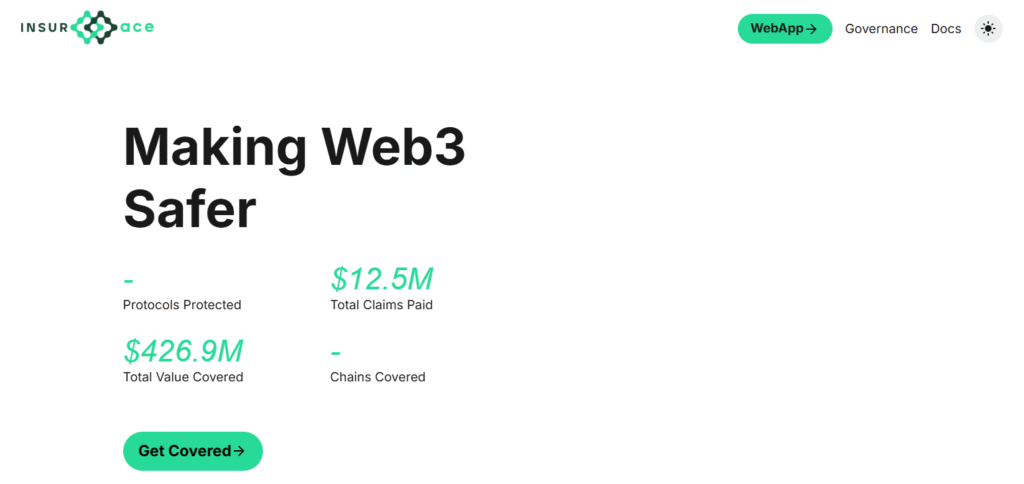
Their ecosystem is strengthened with major DeFi ecosystem partners and a dual token structure (INSUR governance and payments token).
In 2025, due to its extensive coverable risks and scaling options, InsurAce is slated to become the primary cover provider for DeFi users.
InsurAce Features
Multi-Chain Support: Provides coverage of more than 140 protocols across Ethereum, Polygon, Binance Smart Chain and over 20 other blockchains making them accessible.
Portfolio Coverage: Offers one product that insures multiple protocols, allowing simpler management of diverse DeFi investments facilitate risk diversification across their extensive DeFi portfolios.
Low Premiums: Provides retail and institutional users with free of charge or ultra-low premium priced insurance making it affordable to its customers.
Stablecoin De-Peg Protection: Provides protection against stablecoin de peg value volatility, a distinct offer aiming other critical areas in DeFi.
Governance and Staking: Allows INSUR token holders to engage in governance and earn rewards by insuring or adjudicating claims to the cover provided.
3. Bridge Mutual
By providing customizable and decentralized insurance for DeFi protocols, stablecoins, and smart contracts, Bridge Mutual rightfully secures its position among the Best DeFi Insurance Platforms.
Users can purchase coverage specific to certain perils like protocol hacks, stablecoins volatility, or even timeout windows, while liquidity providers earn yields by underwriting policies.
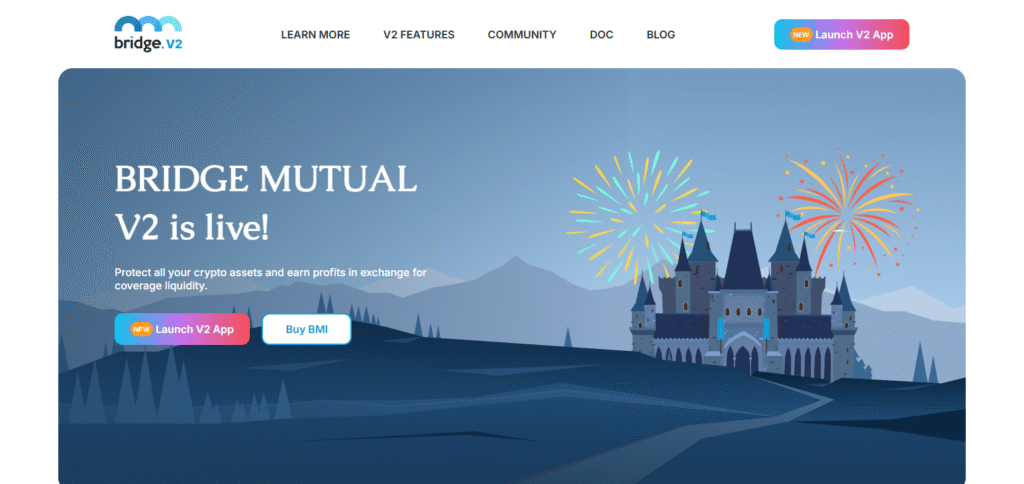
Built on Ethereum with cross-chain aspirations, Bridge Mutual focuses on transparent claims processing on the blockchain to promote trust in its community model.
Its sustained emphasis on agility and simplicity holds the potential to make it a frontrunner in the DeFi insurance market in 2025.
Bridge Mutual Features
Permissionless Pools: Flexibility and innovation are enhanced when users can create coverage pools for any DeFi protocol.
Stablecoin Underwriting: Yield attractiveness increases when volatility risks in liquidity provider underwriting are minimized through stablecoins.
Shield Mining: More liquidity and enhanced coverage capacity are attracted when projects boost pool APYs by using their tokens to contribute, aiding coverage augmentation.
Leveraged Portfolios: Capital efficiency is maximized when users can concurrently underwrite several protocols in the same account.
Transparent Claims: On-chain claims made are validated by the communities themselves with clear-cut processes, ensuring fairness.
4. Tidal Finance
Tidal Finance is known as one of the Best DeFi Insurance Platforms for their new and unique decentralized marketplace that enables direct trading of insurance contracts between buyers and capital suppliers.
Focusing on the risks of smart contracts, Tidal allows users to create or join tailored insurance pools geared toward specific DeFi protocols.
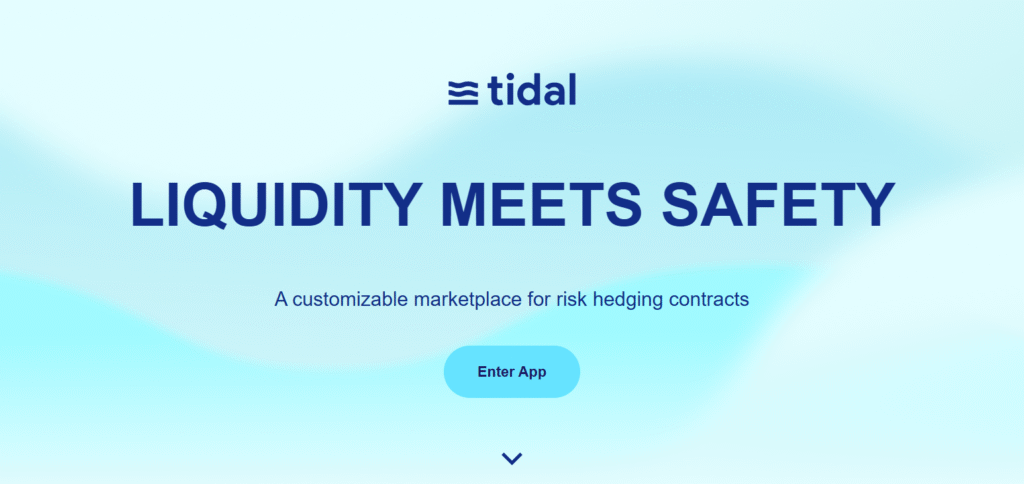
Its capital-efficient model guarantees competitive pricing, defended by the governance token TIDAL which makes community members active in participating in risk evaluation.
Based on Ethereum and Polygon, Tidal is predicted to be an important player in the DeFi insurance market in 2025 due to its scalability and user-focused approach.
Tidal Finance
Customizable Pools: DeFi protocols can be optimized to meet desired individual needs when users are permitted to join and create insurance pools.
Capital Efficiency: Competitively priced premiums are provided as supply to capital waste is minimized by matching buyers and liquidity providers.
Cross-Chain Compatibility: Further expansion plans in other blockchains make operation on Polygon and Ethereum more flexible.
Governance Token: Tidal holders of the token are given permission to vote on risk settings and decisions of the protocol, thus serving community interests.
Automated Claims: Minimal manual intervention and delay is achieved in claims processing through the use of smart contracts, enabling faster streamlined processes.
5. Etherisc
With an innovation focused on user-friendliness, Etherisc stands as one of the Best DeFi Insurance Platforms. This is due to the open-sourced protocol that allows developers to create decentralized insurance products Etherisc has developed.
Beyond DeFi specific coverage for smart contracts vulnerabilities, Etherisc supports unique use cases like crop and flight delay insurance showcasing versatility.
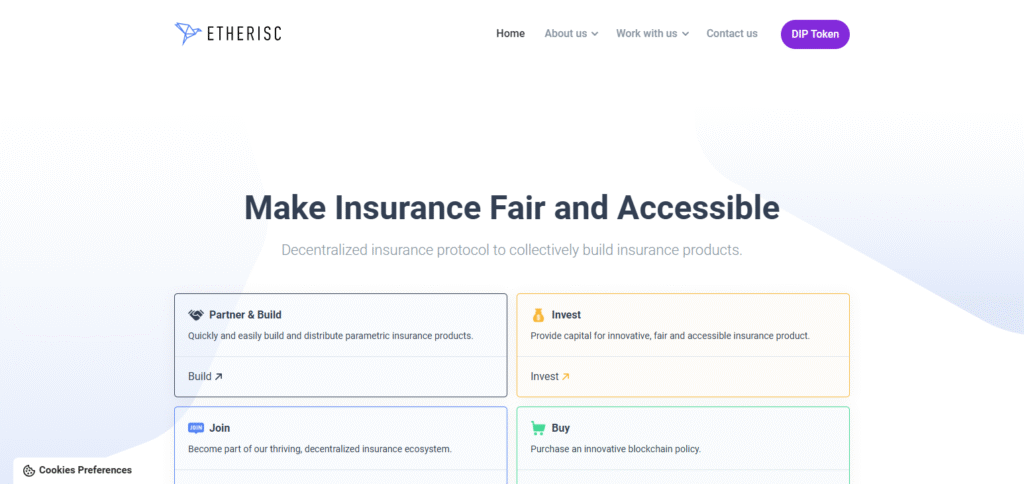
Its Flight Delay Insurance DIP is built on Ethereum and offers parametric payouts gaining traction for its delayed flight insurance.
The commitment towards innovation alongside accessibility is what ingrains Etherisc as a forward looking platform within the DeFi insurance ecosystem in 2025.
Etherisc Features
Open-Source Protocol: Lets developers create specific insurance products, ranging from DeFi coverage to real-world applications like crop insurance.
Parametric Insurance: Provides automated payouts with minimal disputes for pre-defined triggers like flight delays or weather events.
DIP Token Utility: Ecosystem participation is incentivized when DIP tokens are staked for risk pools, governance, and claim processing.
Real-World Coverage: Insurance extending beyond DeFi encompasses events like natural disasters which broaden its use case.
Chainlink Integration: With the use of decentralized oracles, accurate data feeds for parametric payouts are insured, enabling reliable precision.
6. Unslashed Finance
Unslashed Finance emerges as a dominant figure within the Best DeFi Insurance Platforms, providing coverage for multitude of crypto risks like exploit of smart contracts, failure of oracles, and stablecoin de-pegging.

The Unslashed pools permit users to buy insurance or act as capital providers, making the process of reservices unsupervised which boosts transparency and efficiency simultaneously.
Utilizing Ethereum’s blockchain, Unslashed emphasizes the need for community based claims processing as well as providing high returns to liquidity providers.
Focusing on diversified risk coverage alongside decentralized governance ensures relevance in the perpetual evolving world of DeFi insurance in 2025.
Unslashed Finance
Broad Risk Coverage: Encompassing protection from smart contract exploits, oracle failures, exchange hacks, and stablecoin de-pegging.
Permissionless Participation: Anyone can add capital to coverage pools to earn yields from premiums, as well as from protocol incentives.
Kleros Arbitration: Ensures fairness by integrating Kleros for transparent dispute resolution during claims, providing decentralization.
Parametric Options: Coverage of specific events for automated payout efficiency.
Community Voting: Claims are validated through community voting processes that enhance trust and decentralization.
7. Ensuro
Ensuro is one of the Best DeFi Insurance Platforms mainly because of its parametric insurances such as flash loan attacks, protocol failures, and market manipulations.
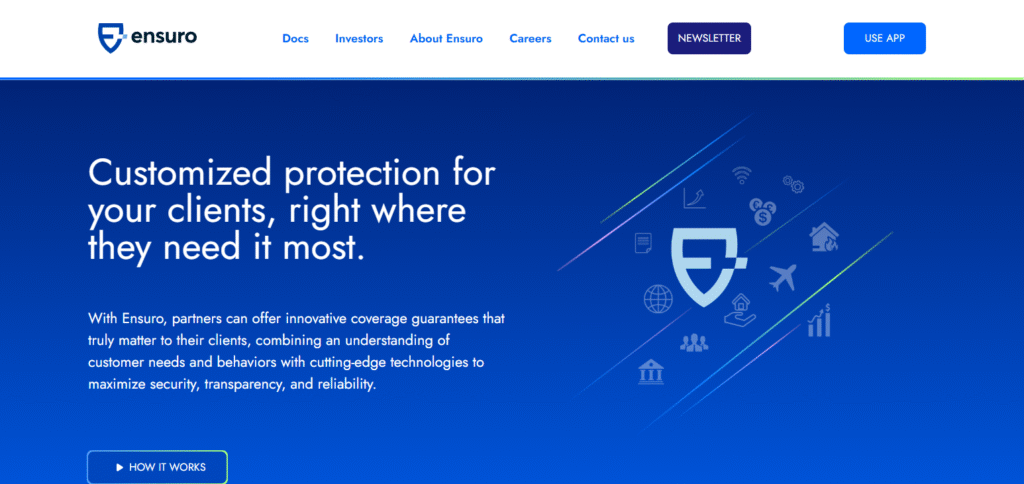
Ensuro is built on Ethereum which automates claims and pays by smart contracts to reduce the manual for work. Its protocol is open meaning that all third parties can create their custom insurance products which helps in innovation.
As a result, in 2025, Ensuro transforms automation, transparency, and niche risk coverage to become appealing to DeFi users looking for trusted protection.
Ensuro
Parametric Models: Automated payouts for flash loans and protocol failures rely on predefined triggers.
Open Protocol: Innovational concepts can be developed in DeFi insurance by allowing anyone to design bespoke insurance.
Risk Diversification: Capital allocation increases stability with exposure reduction, with lower volatility across the various risk pools.
Transparent Claims: Claims can be executed on chain within a specific criterion which reduces ambiguities as well as delays.
Ethereum-Based: Provides coverage on Ethereum, utilizing its smart contracts and security infrastructure.
8. Sherlock
Sherlock stands out as one of the Best DeFi Insurance Platforms because of its hybrid model that features security audits and insurance coverage for smart contract exploits.
DeFi protocols that use high risk are covered by south sherlock to ensure that claims are not paid until exploits are verified.

Staking policies form an ecosystem where users take out tokens to underwrite policies. This self-sustaining model is on Ethereum where previously paid tokens fetch more.
Sherlock is trusted by top DeFi projects and this focus on prevention and coverage makes it a rising star in 2025.
Sherlock Features
Audit-Backed Coverage: An underwritten policy that comes with an insurance for smart contracts exceeding $5 million. This incorporates security audits into the coverage.
Staking Rewards: Primary earners are staked tokens users, who support policies to policy underwriters, and earn premiums and protocol incentives.
Exploit-Only Payouts: Only verified exploits will qualify for claims, substantially mitigating fraudulent claims and ensuring trustworthiness.
Protocol Focus: Coverage is offered directly to DeFi protocols for simplicity to end users.
Community Governance: Token holders vote on proposal plans and protocol improvement making them the decision-makers along with shared financial benefits..
9. Solace
Solace occupies as a frontrunner within the Best DeFi Insurance Platforms for its automated risk assessment and coverage for DeFi protocols on different blockchains such as Ethereum, Polygon, and Aurora.
Splits pricing model reforms premiums in accordance with real-time protocol risk, further guaranteeing equitable costs.
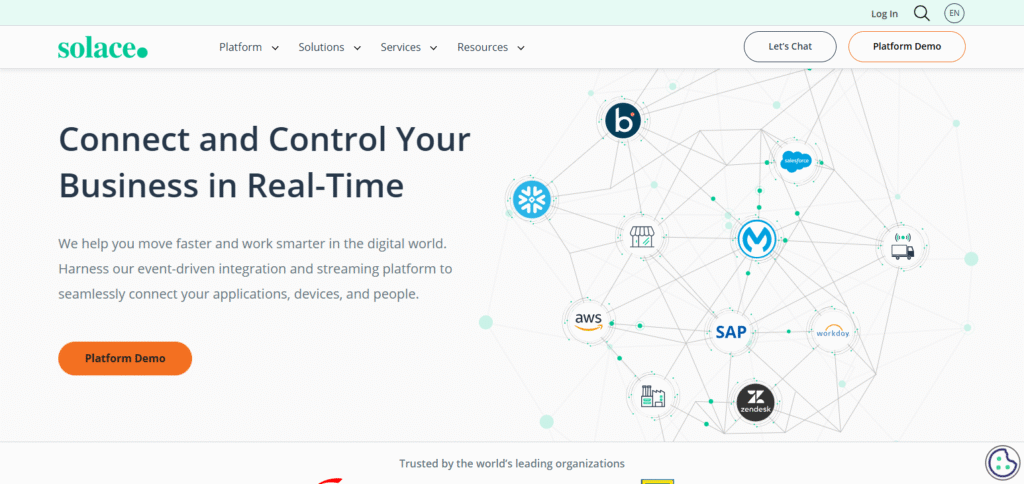
A streamlined claims process paired with an intuitive interface engages both novice and seasoned users alike.
Its cross-chains interoperability and a focus on mitigating complexities of DeFi insurance will position Solace dominantly towards innovation and accessibility in 2025.
Solace Features
Dynamic Risk Assessment: Guarantees precise pricing through real-time risk monitoring, which automatically calibrates premiums.
Cross-Chain Support: Extends support to DeFi users operating on Ethereum, Polygon, and Aurora.
Portfolio Coverage: Transform insurance into a single policy solution by covering entire DeFi portfolios.
User Friendly Interface: Simplifies the insurance process for both novices and seasoned professionals through an intuitive design.
Automated Claims: Speeds up payment processes through smart contracts by reducing human intervention and overly manual steps.
10. Bright Union
Bright Union rounds out the Best DeFi Insurance Platforms as a decentralized advocate which helps users select an insurance plan. She adopts a new approach allowing users to purchase policies from various protocols such as Nexus Mutual and InsurAce on a single platform.
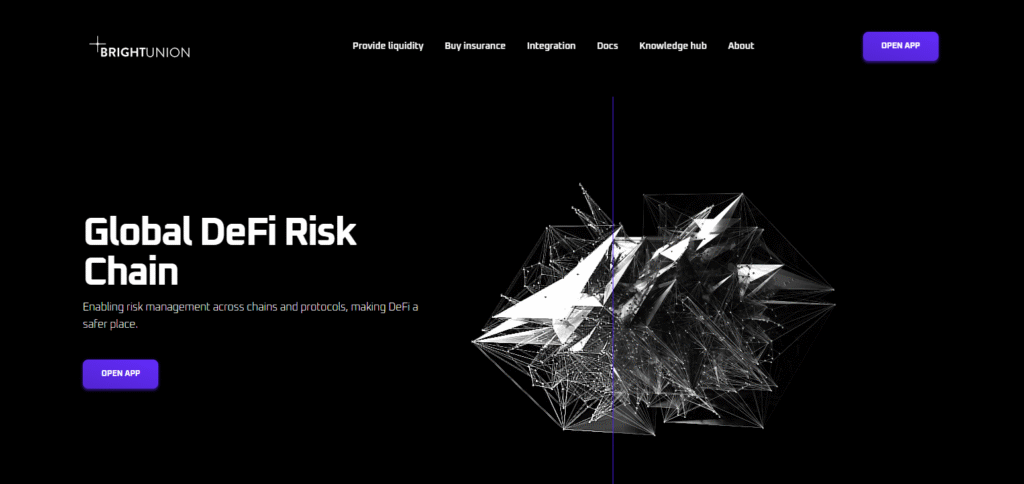
Constructed on Ethereum, Bright Union focuses equally on user experience which makes it helpful for people unfamiliar with DeFi Insurance. In 2025, its multiple offerings boosts its position toward becoming a value-rich competitor within the DeFi ecosystem.
Bright Union Features
Insurance Aggregator: Allows users to compare and purchase coverages from Nexus Mutual and InsurAce in a single integration.
Multi-Chain Support: Improves accessibility for DeFi users because of operations on multiple blockchains.
User-Centric Design: A clear design geared towards new users that has reduced the complexity of obtaining insurance.
Community Governance: Token holders contribute to platform decisions, which steers the platform to better serve users.
Risk Diversification: Decreases reliance on a single provider by sharing coverage across multiple protocols.
Conclusion
In summary, the leading platforms for DeFi insurance offer critical protection for the users and protocols from the peculiar threats inherent within decentralized finance.
Platforms such as Nexus Mutual, InsurAce, and Bridge Mutual provide unparalleled, clear, and transparent insurance services customized for the specific requirements of the DeFi populace.
In this evolving ecosystem, these platforms serve a critical role in fostering trust and encouraging the adoption of decentralized technologies.





